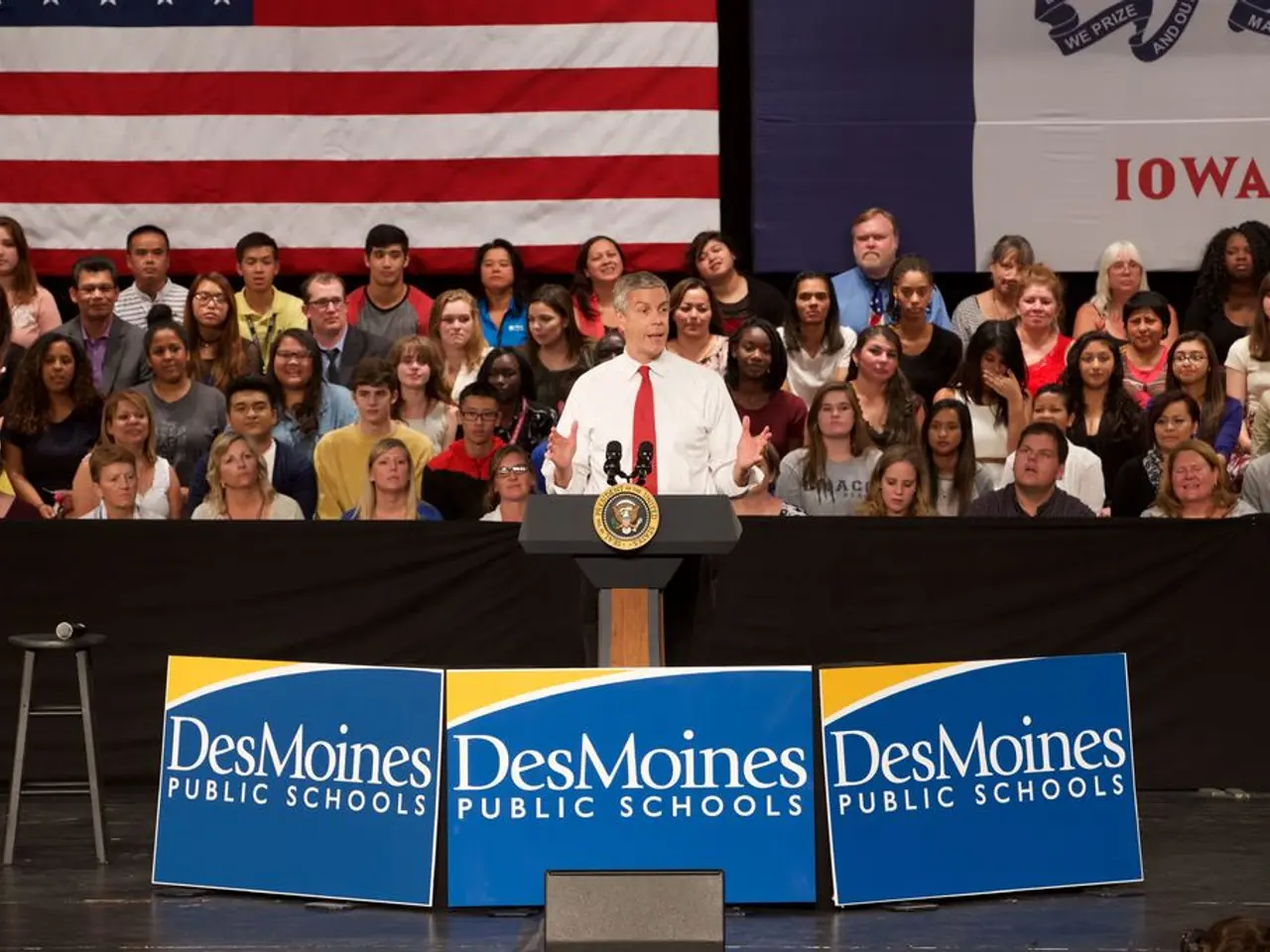Social Media Elections Struggle Due to Spread of Misinformation Among Parties in 2025
In the lead-up to Japan's House of Councillors election on July 16, misinformation and disinformation are proving to be significant challenges for both political parties and social media platforms.
A recent example of this problem is a false video post circulating on various social media platforms, claiming that Prime Minister Shigeru Ishiba threatened a newscaster on a Nippon Television Network Corp. program on July 1. However, the Japan Fact-Check Center has concluded that the post is "false," and neither the Prime Minister nor the network has officially confirmed its truthfulness.
Seven parties, including the ruling Liberal Democratic Party and the main opposition Constitutional Democratic Party of Japan, have emphasized the dangers posed by the monetization system of social media, which accelerates the spread of misleading content for profit. They have requested platform operators to continue improving services to ensure sound and fair elections.
The Ministry of Internal Affairs and Communications has formally requested major platform operators, including Twitter and Line, to explain how users can request removal of harmful or misleading posts, speed up the removal process, and clarify the criteria for taking down such content.
Despite these efforts, political parties still struggle to tackle false posts effectively. One example is a viral edited video falsely portraying Prime Minister Shigeru Ishiba threatening a newscaster, which was debunked by the Japan Fact-Check Center.
Another challenge is the emergence of artificial intelligence–generated content that can mimic candidates’ voices, creating further complexities in identifying authentic versus fabricated statements online. A candidate recently criticized a YouTube video for using an artificial intelligence-generated voice that resembles their own, as it said things that were not actually said.
The existing monetization structures of social media platforms incentivize the spread of sensational or misleading content for clicks and profit, complicating efforts to curb disinformation. The lack of a unified regulatory framework or enforcement mechanisms means that misinformation mitigation relies heavily on platform voluntary actions and citizen vigilance, which may be insufficient during fast-paced election campaigns.
Attempts to legislate or formalize regulations against misinformation during elections stalled and were shelved during the 2025 parliamentary Diet session, leaving responsibility largely to political parties and social media platform operators rather than government-imposed rules.
In summary, while Japanese political parties and government agencies actively encourage platform accountability and citizen caution during elections, the handling of misinformation is largely reliant on voluntary cooperation, fact-checking organizations, and platform moderation. The absence of formal regulatory consensus and political agreement limits the effectiveness of countermeasures. New challenges such as AI-generated misinformation further complicate the landscape, making it difficult for parties and platforms to fully contain the spread of false or harmful election-related content.
- The monetization system of social media, which incentivizes the spread of sensational or misleading content, is a significant challenge in the prevention of disinformation, as highlighted in the election lead-up for Japan's House of Councillors.
- Artificial intelligence–generated content has emerged as a complex problem in identifying authentic versus fabricated statements online, with a candidate recently criticizing a YouTube video for using an AI-generated voice that resembled their own, misrepresenting truthful statements.
- Despite efforts by both the government and social media platforms to curb misinformation, political parties continue to grapple with the effective handling of false posts, as shown by the viral edited video falsely portraying Prime Minister Shigeru Ishiba threatening a newscaster, which was eventually debunked by the Japan Fact-Check Center.







